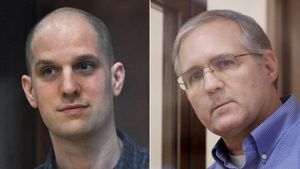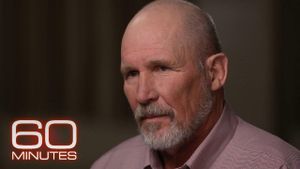Recent violence erupted in Sambhal, Uttar Pradesh, leading to tragic deaths and injuries, prompting strong reactions from political leaders. On Monday, Rahul Gandhi, the Leader of the Opposition in the Lok Sabha, accused the Bharatiya Janata Party (BJP) of exacerbated communal tensions and urged for Supreme Court intervention to restore peace.
The situation unfolded following clashes between protesters and police over the survey of Jama Masjid, where demonstrators believed the site originally housed a Hindu temple. These protests turned chaotic, resulting in the deaths of four individuals, with many others, including security personnel, suffering various injuries.
Gandhi expressed his condolences on social media, calling the government's rapid response 'biased and hasty.' He stated, "The biased and hasty attitude of the state government on the recent dispute in Sambhal, Uttar Pradesh, is extremely unfortunate." He emphasized the need for the Supreme Court to step in as communal discord, he says, is not conducive to the state's or the country's interests.
He went on to assert, "The BJP's use of power to create a rift and discrimination between Hindu-Muslim communities is neither in the interest of the state nor the country." His call for peace and communal harmony resonates within the larger political milieu we have seen since these clashes broke out.
Following the violence, the local administration imposed prohibitory orders, barring entry to outsiders until November 30 and suspending internet services to curb misinformation. Schools also remained closed as tensions remained high. Police reported they were unable to complete the survey scheduled at the mosque due to the unrest.
The initial sparks of violence can be traced back to November 19, when the court-ordered survey began, igniting growing frustrations among residents. The local police reported the presence of armed individuals among the protesters, which samplified the violence.
A police spokesperson detailed the number of injuries sustained, saying “The PRO of the superintendent of police suffered a gunshot to the leg, and the circle officer was hit by pellets, with 15 to 20 security personnel injured during the altercations.” Regrettably, the situation escalated rapidly, leading to gunfire from miscreants. The Deputy Inspector General of Police for the Moradabad division later confirmed the deaths of three individuals from the violence, which led to protests against the government policy approach.
Priyanka Gandhi, another prominent congress leader, voiced her criticism against the Yogi Adityanath government for fostering division through its policies. She stated, "The attitude of the state government is very unfortunate," chastising the administration for neglecting necessary procedures and protocols.
While expressing her plea for maintaining peace, she noted, "Trying to spread discrimination, oppression and division...is neither in the interest of the people nor the interest of the country." Meanwhile, she called upon the Supreme Court to investigate the matter thoroughly, signaling the opposition's push for accountability.
The backdrop of this violent episode reflects the broader trend of rising inter-religious tensions across the country, with political parties entrenched firmly along communal lines. Congress has accused the BJP of consciously inflaming such tensions to consolidate power.
Congress leaders narrate the dire consequences of state actions, alleging the authority had been complicit by not addressing grievances from both communities involved. They claim the violence is evidence of what they call a "well-planned conspiracy" to instigate communal unrest, leading to fatal outcomes.
On the political front, the Congress has already filed multiple FIRs against notable local figures, including Samajwadi Party MP Zia-ur-Rehman Barq, indicating the tensions were not confined simply to citizen disputes but were entwined with the political fabric of the region.
The district authorities have taken precautionary measures post-violence, with heavy deployment of security forces and imposing strict curfews. While officials maintain order, the after-effects of the conflict have left communities grappling with fear and uncertainty.
This episode encapsulates the distressing reality of communal politics which threatens not just the stability of regions like Sambhal but the cohesive fabric of India as well. Leaders continue to express the importance of dialogue and maintaining harmony, urging all sides to tread carefully as communal tensions re-emerge.
The Congress party’s response, centered around appealing for justice and accountability, reflects broader concerns within Indian society about governance and the protection of human rights amid rising polarization. With the Supreme Court's involvement being strongly advocated by prominent leaders, the focus remains on finding solutions to restore peace.
Political observers suspect this incident may serve as more than just local unrest; it could instigate larger discussions around the role of law enforcement and governmental accountability, framing it as part of the opposition's strategy as it gears up for parliamentary sessions.
The Lok Sabha and Rajya Sabha are expected to deliberate on these violence incidents alongside other pressing matters like the Waqf bill, where discussions are anticipated to focus on minority rights and community safety. The overarching narratives of discord also prompt questions about how policy decisions impact communal harmony and the government’s role therein.
Overall, the challenge remains for leaders on all sides to address the grievances constructively and focus efforts on restoring mutual respect and dialogue within communities. India hopes for movements toward unity rather than division, especially during these contentious times.
How well the political apparatus responds to these societal calls for peace remains to be seen as the fallout from the Sambhal violence potentially shapes the future political discourse.



